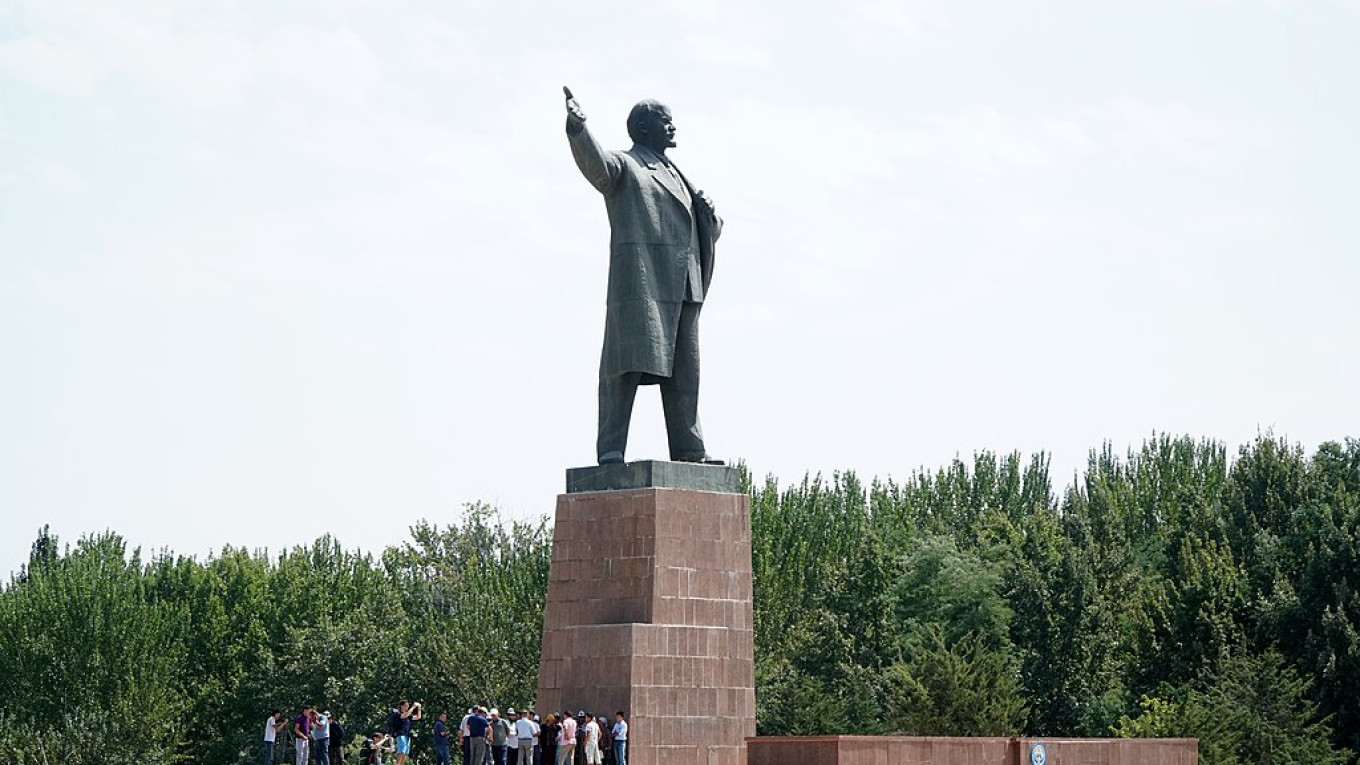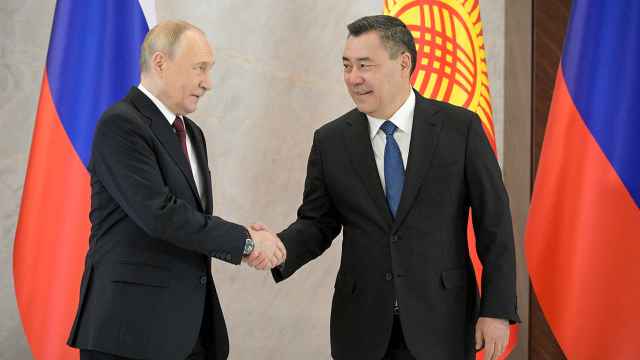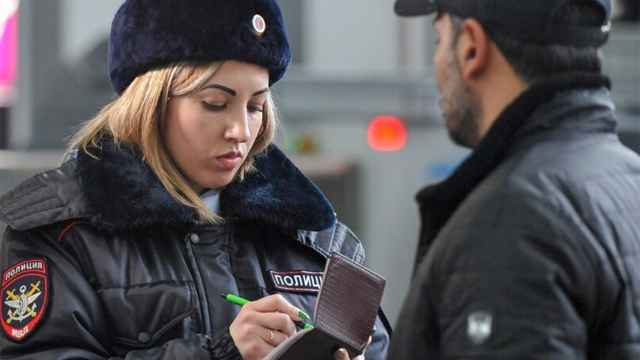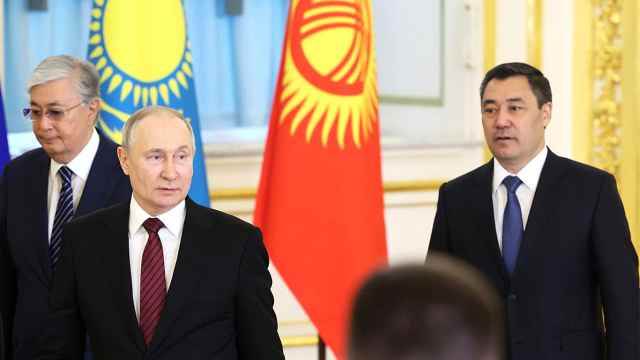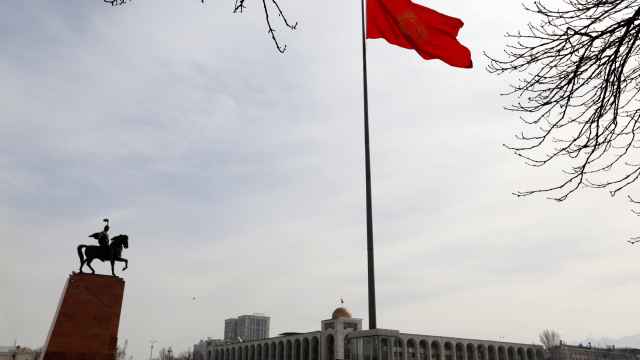Russian ally Kyrgyzstan on Saturday quietly dismantled Central Asia's tallest monument to Vladimir Lenin, the revolutionary founder of the Soviet Union.
Ex-Soviet states across the region are seeking to strengthen their national identities, renaming cities that have Russian-sounding names and replacing statues of Soviet figures with local and national heroes.
Russia, which has military bases in Kyrgyzstan, is striving to maintain its influence there in the face of competition from China and the West and amid its invasion of Ukraine.
Officials in the city of Osh — where the 23-meter (75-foot) high monument stood on the central square — warned against "politicizing" the decision to "relocate" it.
Osh is the second-largest city in the landlocked, mountainous country.
The figure was quietly taken down overnight and is set to be "relocated," Osh officials said.
The decision "should not be politicized," city hall said, pointing to several other instances in Russia "where Lenin monuments have also been dismantled or relocated."
"This is a common practice aimed at improving the architectural and aesthetic appearance of cities," it said in a statement.
Despite some attempts to de-Sovietize the region, memorials and statues to Soviet figures are common across the region, with monuments to Lenin prevalent in the vast majority of cities in Kyrgyzstan.
Kyrgyzstan was annexed and incorporated into the Russian Empire in the 19th century and then became part of the Soviet Union following the 1917 Bolshevik revolution.
It gained independence with the collapse of the U.S.S.R. in 1991.
A Message from The Moscow Times:
Dear readers,
We are facing unprecedented challenges. Russia's Prosecutor General's Office has designated The Moscow Times as an "undesirable" organization, criminalizing our work and putting our staff at risk of prosecution. This follows our earlier unjust labeling as a "foreign agent."
These actions are direct attempts to silence independent journalism in Russia. The authorities claim our work "discredits the decisions of the Russian leadership." We see things differently: we strive to provide accurate, unbiased reporting on Russia.
We, the journalists of The Moscow Times, refuse to be silenced. But to continue our work, we need your help.
Your support, no matter how small, makes a world of difference. If you can, please support us monthly starting from just $2. It's quick to set up, and every contribution makes a significant impact.
By supporting The Moscow Times, you're defending open, independent journalism in the face of repression. Thank you for standing with us.
Remind me later.


